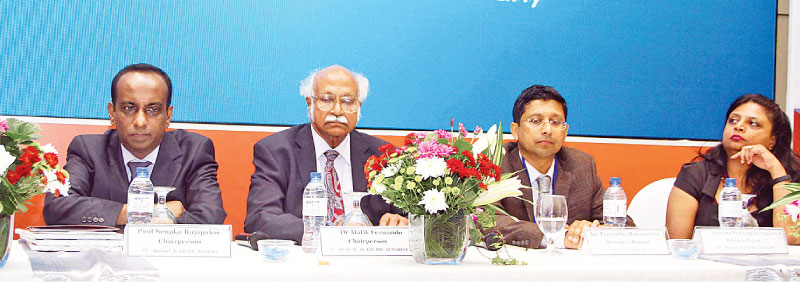Hundreds of South Asia’s most prominent physicians are collaborating to discuss critical developments in the medical field, at the 51st Annual Academic Sessions of the Ceylon College of Physicians (CCP), inaugurated on Wednesday at the Galadari Hotel, Colombo.
The Academic Sessions span four days, with 18 symposia and 18 teaching capsules, 12 plenaries, and three special workshops. Participants are from Sri Lanka, as well as India, Pakistan, Singapore, Australia, the UK, and the U.S.
“There is a contingent of people coming from overseas with their knowledge,” said Professor Saroj Jayasinghe of the University of Colombo. “Therefore, it is a forum for people to update their knowledge.”
Jayasinghe said he personally gains a lot form the Sessions. “It is a place where you exchange and learn from others and network. It is a forum where you can share your findings and your thoughts,” he said.
While a wide range of urgent medical topics are discussed—including digital healthcare, ethical dilemmas in the changing medical field, evolution in the treatment of cardiological, neurological, and end of life diseases—the takeaway from the 51st Annual Academic Sessions is comprehension.
Comprehension asks how cells, organs, people, physicians and environment interact through various micro and macro-scales. It sheds promising light on the future of medical education and healthcare in Sri Lanka, he added.
Participants consider the edification of medicine for current and aspiring physicians. At present, medical understanding, as well as practice, looks at diseases in an isolated manner, which Jayasinghe said is reductionist.
“The way most students and doctors think tends to be mechanistic and reductionist, and that comes from our education,” he said. Jayasinghe, in his a lecture on ‘Systems Science,’ says the future of medicine is, “where you try to show the linkages of things, which may appear to act in isolation, but if you look at it, it’s the result of a system acting in coordination.”
For example, having a heart attack might reduce blood pressure, which affects the kidney.
“And the kidney can malfunction and cause kidney failure,” said Jayasinghe. “As a result, you will stop excreting urine, which will mean you have more fluid, which worsens your heart function. So it’s a cycle. “If you understand a person, you have to understand all this because if a person is critically ill, the whole system becomes sensitive to minor changes,” he said. The future of medicine that the CCP espouses is from this systematic, interconnected approach, reflected in a number of talks given at the conference, including by Professor Anand Zacharaiah from the Christian Medical College in Vellore, India.
Zachariah focuses on the contextualisation of medical knowledge to address health needs.



Add new comment